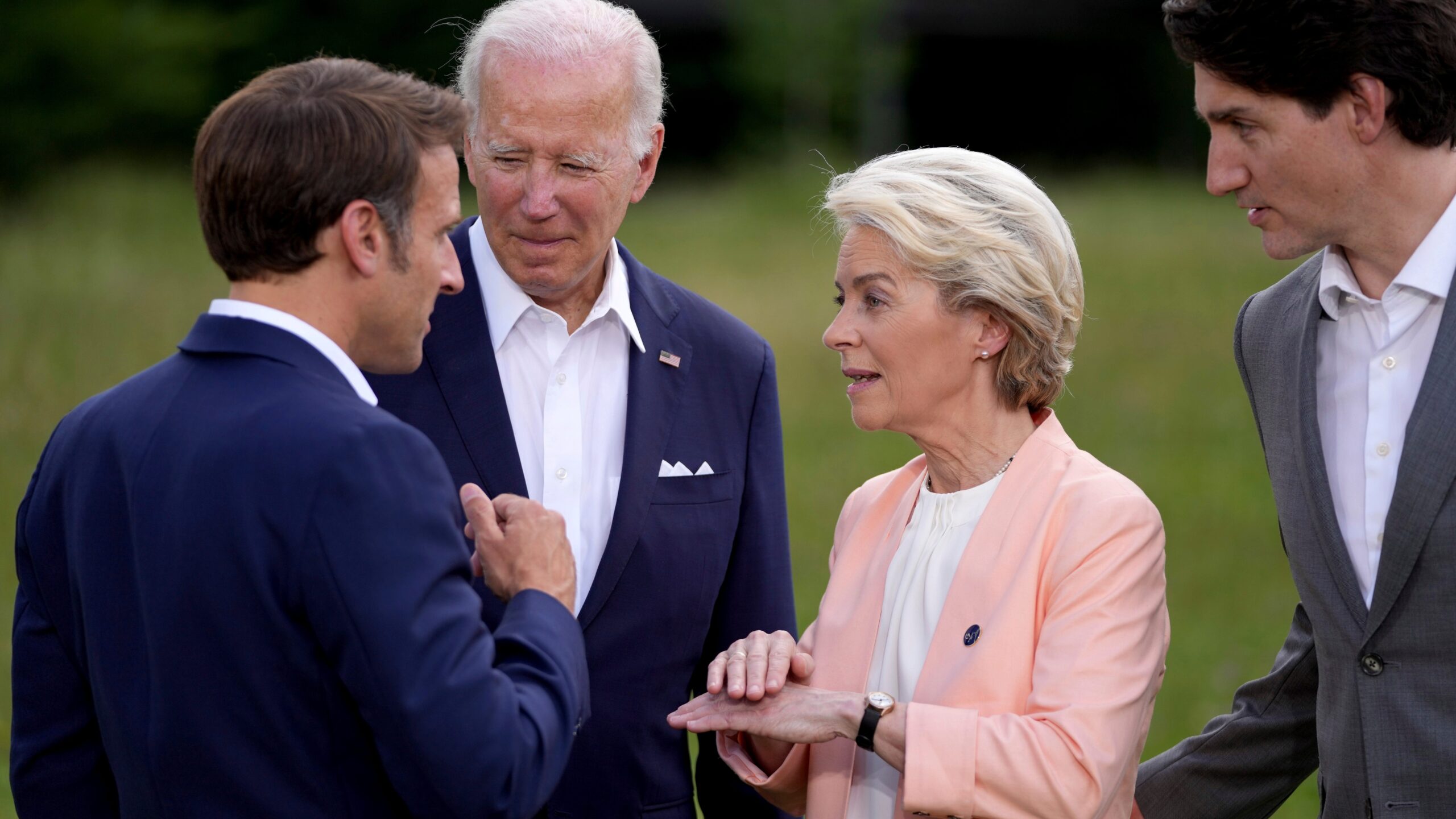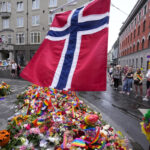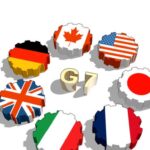
ELMAU, Germany — Group of Seven nations are moving closer to capping the price that countries can pay for Russian oil, a senior U.S. official said.
The official said leaders aim to further restrict Vladimir Putin’s cash flow, bring down prices at the gas pump and provide greater stability to energy markets.
Leaders were said to be zeroing in on the way Russian oil is shipped. The U.S. official said G-7 leaders are planning to direct their governments to take urgent steps to design a price cap mechanism.
No additional details on a potential price cap and how it would work were immediately available.
The U.S. also announced on Monday that it would introduce sanctions that would make it harder for Russia to replace its military equipment.
G-7 leaders have also agreed on a new way to fund the Ukrainian war effort, according to the White House. A fact sheet on the new measures says nations will seek to use funds generated by new tariffs on Russia to help Ukraine. As part of the announcement, the U.S. says it will raise tariffs on roughly $2.3 billion of Russian goods.
Russia is on the verge of defaulting on its debt for the first time in more than a century, with access to its foreign currency reserves halted. The country is also experiencing inflation above 17%.
The latest
- Ukraine comes in focus: Leaders will spend their morning discussing ways to help Ukraine beat back a Russian offensive. They will be addressed virtually by Ukrainian President Volodymyr Zelenskyy.
- Big decisions: Zelenskyy’s speech will jumpstart conversations about additional heavy artillery shipments, and G-7 leaders will discuss price caps on Russian oil.
- Global cooperation: To keep Putin from selling oil to other nations at higher prices, G-7 countries need cooperation from nations outside their alliance.
- Enter India: Germany is hosting G-7 leaders this year at a resort in the Bavarian Alps. Chancellor Olaf Scholz invited India and several other countries to participate.
- Why it matters: India’s imports of Russian oil have spiked recently, as Putin offloads his reserves to nations outside the economic bloc.
What’s about to happen
Group of Seven leaders will spend the second day of a Bavarian summit talking about a leader who was once a part of their exclusive economic club: Vladimir Putin.
Biden will try to talk European nations into ceasing all imports of Russian oil and gas. World leaders are also expected to discus capping the price of oil and gas imports to help fight inflation and further cut into Putin’s financial resources.
In 2014, G-7 nations banished Russia from their gathering over its first invasion of eastern Ukraine. Now, with Putin’s army pummeling the country, world leaders are rushing to stop him.
Leaders will work over lunch (again) — this time discussing climate, energy and health initiatives. Later in the day they will sit down with guest nations. This host of this year’s summit, Germany’s Scholz, invited the leaders of Argentina, India, Indonesia, Senegal and South Africa to attend.
Want to know more? Here’s what you missed
Biden and G-7 leaders announced a ban on new imports of Russian gold on the first day of their summit. They also launched a global infrastructure initiative.
More:Biden bans Russian gold imports as G-7 considers new sanctions over Ukraine war: Recap




